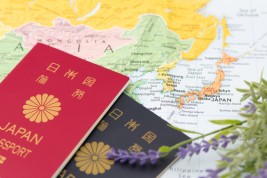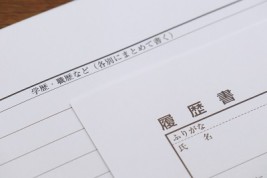FAQ for Job Seekers in Japan: How to Search Jobs?
GTalent, which supports the employment and job changes of foreigners living in Japan, has summarized the common questions and anxiety in the Q & A format when foreigners are going to work or change jobs in Japan. If you are considering to find a job in Japan, please feel free to refer to it!FAQ for Job Hunting in Japan! 14 Questions and AnxietiesQ1. How many foreigners work in Japan?A. 1,658,804 foreign workers are working in Japan as of the end of October 2019(“The employment status about foreigner in Japan” by Ministry of Health, Labor and Welfare).It has increased by about 200,000 foreign workers compared to the previous year. In Japan, there is a shortage of labor force due to issues such as population decline and aging society, so various industries are actively accepting foreign labor force.Since there are about 60 million employees in Japan (As of March 2020, “Labor Survey” by Statistics Bureau, Ministry of Internal Affairs and Communications), about 2.7 out of every 100 are foreign workers.Q2. What do I need to work in Japan?A. To work in Japan, you need a workable visa. Working hours will vary depending on the type of visa, so it is recommended to check the visa type in advance on the website of TOKYO EMPLOYMENT SERVICE CENTER FOR FOREIGNERS.If you are a foreigner working as a regular employee in Japan, a representative working visa is a status of residence for “ENGINEER / SPECIALIST IN HUMANITIES / INTERNATIONAL SERVICES “.You can work in Japan without obtaining a working visa, if you need some residence visas like “Permanent Resident”, “Japanese spouse”, “Permanent spouse” or “Long term residence” so on.Q3. In which fields do foreigners most work in Japan?A. As of the end of October 2019, the percentage of manufacturing industry was the highest at 29.1%. Next are the service industry at 16.1% and retail / wholesale industry at12.8%(“The employment status about foreigner in Japan” by Ministry of Health, Labor and Welfare).In recent years, as the number of foreign tourists visiting Japan has increased, the number of foreigners working for sales and tourism is increasing. also, there is a shortage of IT engineers in Japan, and the number of foreigners working as IT engineers has been increasing significantly recently.Q4. From what countries are the employees working in japan?A: As of the end of October 2019, the countries of origin of foreign workers are China 418,000 (25.2%), Vietnam 401,000 (24.2%) and Philippines 179,000 (10.8%). In recent years, the number of people from Southeast Asian countries such as Vietnam has been increasing especially(“The employment status about foreigner in Japan” by Ministry of Health, Labor and Welfare).Q5. In which city of Japan are foreigners working?A: As of the end of October 2019, the percentage of cities in Japan where foreigners are working is 26.6% in Tokyo, 8.0% in Aichi, and 7.3% in Osaka(“The employment status about foreigner in Japan” by Ministry of Health, Labor and Welfare).After all, there are a lot of foreigners working in the capital, Tokyo.Q6. Are there some difference between Japanese and foreigner when working in Japan?A. First of all, Japanese law prohibits to discriminate working benefits based on nationality.If you have the same occupation and position as a Japanese worker, your salary is basically the same as a Japanese worker. And also, when applying for a working visa, it is necessary that the salary is equivalent with Japanese in the same positions except for some cases.Q7. How much Japanese language skills do I need to work in Japan?A. The Japanese language skills required vary depending on the job type, but generally, business level Japanese ability (JLPT N2 or higher) is required. However, there are foreigners who are employed as English teachers or engineers of some IT companies even if they cannot speak Japanese.Q8. When working at a Japanese company, is it difficult to take a major position unless you are Japanese, as the word “glass ceiling” means?A. Japanese companies that have a long history and old ideas tend to have such ideas. However, there are many cases in which foreigners are playing a major position in companies that are expanding globally in emerging IT companies.Removing the “glass ceiling” has become a challenge for all Japanese companies promoting global and diversity. In addition, since the number of foreign workers has increased in the past few years, it is expected that foreigners will play an important role in many companies in the future.Q9. What is the flow of hiring for Japanese companies?A: The flow of hiring Japanese companies is not much different from other countries. In general, documents screening → interview (2 to 3 times) → offer. In some cases, some companies carry out pre-employment aptitude tests.Q10. Can I find a job in Japan while I am overseas?A: It is possible to have a job interview with a Japanese company while living overseas. Especially nowdays, the number of Japanese companies that complete the selection online is increasing. However, many Japanese companies place importance on not only skills and experience but also “personality”, so there are cases where the first interview is conducted by video call, but in the end, the applicant go to Japan and have a finally job interview. It is a common case. Therefore, if you are looking for a job in Japan, it would be easier to find it if you come to Japan.Q11. Is a Japanese resume absolutely necessary when applying for a Japanese company?A: It depends on the company you applied for. For jobs offers that do not require Japanese ability, Japanese resumes are often unnecessary when applying. However, in most cases, Japanese resumes are required when applying for jobs that require Japanese ability.Q12. I often see “regular employees”(Sei Shain) and “contract employees”(Keiyaku Shain) when Japanese companies are hiring. What is the difference?A: The main difference is the employment period. Full-time employees (Sei-Shain) have a fixed-term employment style with no fixed working period, and contract employees (Keiyaku-Shain) have a fixed-term employment style with a fixed working period. If you are hired as a full-time employee, you don’t have to worry about being dismissed unless there are major problems with the company’s situation or working style.Q13.What kind of methods are available for finding a job after coming to Japan?A: If you are a foreigner looking for a job in Japan, the job advertisement site is most often used. For IT engineers and professionals with management skills, they often use recruitment agencies. If you are looking for a job in Japan, please refer to the following articles for reference. Although it is for IT engineers, it will be useful for other occupations as well.How to Search Jobs for Software Engineers in Japan!Q14. What happens to the work visa procedure if I come to Japan on a working holiday and work as a full-time employee?A: To switch from a working holiday to a workable visa, you will need to apply for a new status of residence. Therefore, it is highly possible that you will temporarily return to your home country for the procedure. (The information is at the end of May 2020).ConclusionFor those who are thinking of finding a job or changing jobs in Japan for the first time, please use the “FAQ” described above. If you are an IT engineer looking for a job in Japan, please register with GTalent, a recruitment agency specializing in foreign IT engineers. A professional consultant will support you in changing jobs for free.















